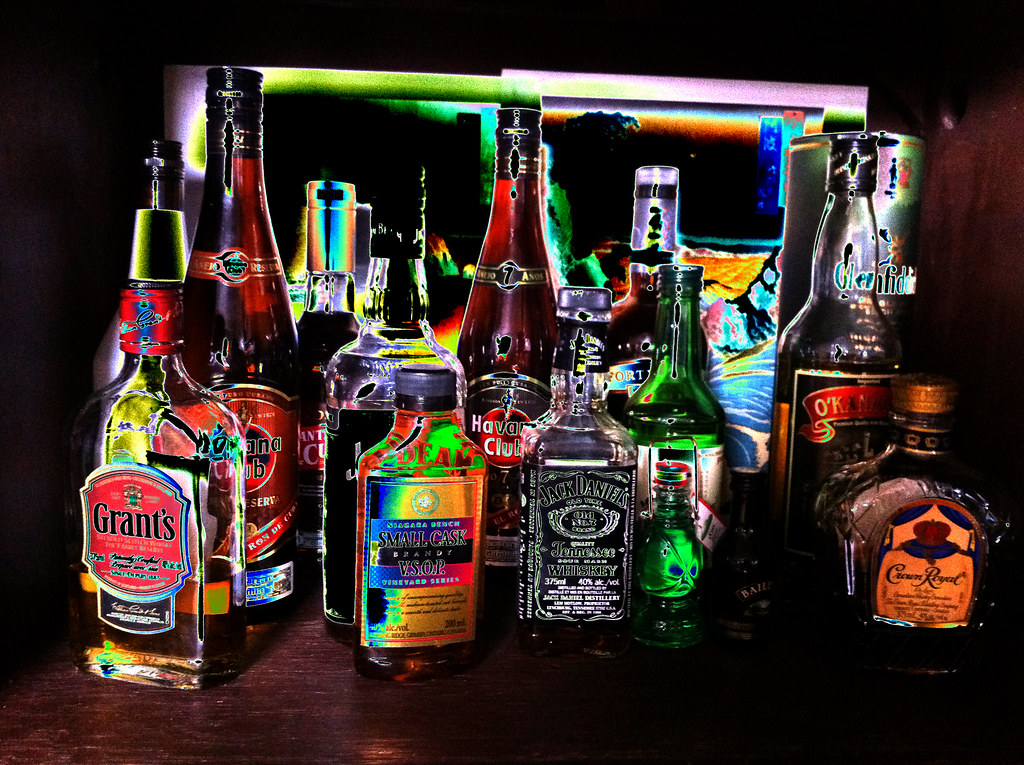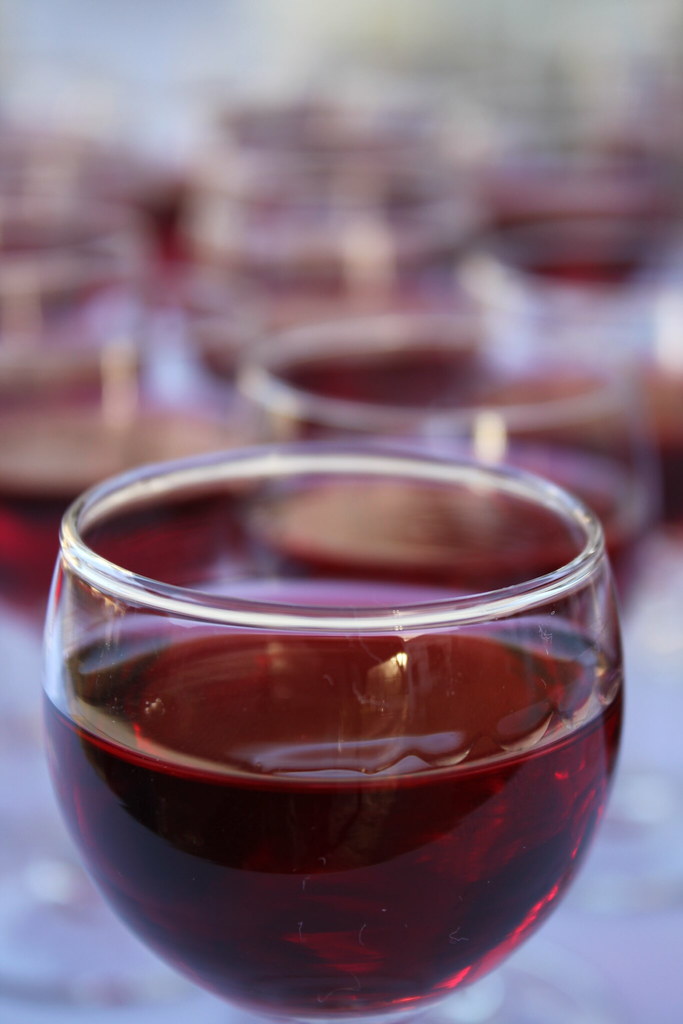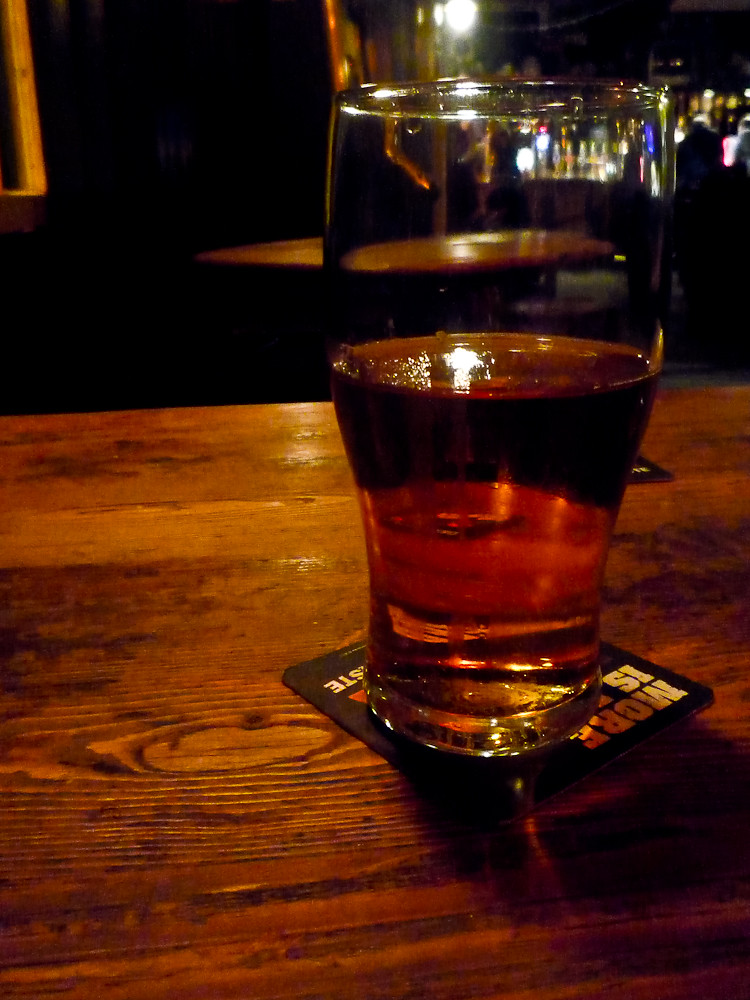Let’s start by putting things into context: you’re originally from a country with a Latin-esque culture. When you were a kid there was always an alcoholic drink on the table at least every Sunday and also during family gatherings; you quickly got used to it and by the time you reached 16 having a couple of glasses each festive was considered something normal. Whether you celebrated your 18th by the end of the 80s or early 90s you already had experimented some sort of tipsiness (at least) but as years pass by you loose interest in alcohol and epic wasted evenings. Oh, and you’ve never ever seen your elders drunk, maybe slightly happy… at most.

And now the Anglo-Saxon extreme: Your bottle always had loads of friends who inevitably ended up in the bin during those intimate evenings and family reunions. They banned you however to touch such singular bottle (or even its friends) as if it were dangerous…somehow; and you became obsessed with it. Until your 18th… or 21st. Then a whole new world opened up miraculously. Once you gained access to the saint chapel the Holy Grail was offered, after so many years you finally had your reward!
And then each evening, each intimate reunion saw the bottle & co nearby, you just got used to its company. Of course there was always a certain someone trying to move his hands over you, or cousin X, well-known for his pacifist beliefs, trying to bang on cousin Y… a classic. Family meetings are much simpler when your elders are also drunk after all…
How about we mix both situations? Someone from a Latin-cultural background is thrown into the Anglo-Saxon culture and vice-versa. If we carefully pay attention we might observe a “cultural shock”! Each of them had its very own well-supported alcoholic beliefs, and finding themselves in slightly different situations becomes a challenging dare, even with something as familiar as alcohol.
I’ve already talked about the French “défonce minute”, new whilst contemporary & somehow linked with the Anglo “binge drinking”. Funnily enough there isn’t much bibliography about this topic despite being a social phenomena and a recurrent topic for the BBC.
We’ve all seen documentaries about the Spring Break, about the English post-Pub noise & laughter or even the Austral-Kiwi passion for large amounts of golden beer… yep, all this without even mentioning the Irish who may concentrate most beer-related cliches. I’m really not interested in using stereotypes to study cultural differences. It is interesting however to dive on a series of constant behaviors that provoke such cultural clash.
Let’s get to the heart of the problem: is there anything that can deeply justify such difference in these cultures’ relationship with alcohol?
Let me focus on the UK to illustrate the Angloholic obsession; a country who inevitably ended up exporting such custom as one of its traditions to other dominated Anglo-saxon cultures… the U.S, Australia…. The Brit alcohol lovestory has always interested historians. “History Today” entitled their 2010 January edition “Bulldog Spirits : Booze and Britons”. The main article itself started with a flashy “Drink, the British disease?”, and we learn (amongst many other things) how the first Licensing Act goes back to 1552 legislating on Alehouses given the number of “public order offenses” at that time. Funny to see how the Act authors used to blame it on their Scandinavian heritage, or even the French culture where wine flows like water….etc.
Now if we go back to the Roman empire you’ll certainly remember the increasing popularity of wine & beer across the Mediterranean ocean (accepting the wine is around 8000 y.o.). But Northern Europe is no stranger to this. Irish missionary St Patrick is believed to have introduced distillation to Ireland, as well as inventing whiskey. During medieval times alcohol production is the prerogative of monks and monasteries and religion certainly had something to do with this: The Bible itself is riddled with alcoholic references and what can we say about Jesus… it felt so natural for the church to spread this fermented heritage.

And when Europeans reached the new world… the excessive drinking doors were open to the Indian Nations (note they already had their own delicious liquors…) but good old Christianising practices introduced a whole new level of fermented dreams. Enough historical bullshit!
In the UK the absence of viticulture & the local social and political conditions have definitely helped to create the “ideal alcohol consumption conditions”. Historians insist that this vice is a reinforcement of climatic (the colder the drunker) and social conditions. It is quite rare nowadays to socialise without a beer on your table right? These rituals are now part of our group identity and “binge drinking” and its negative consequences (health or public order) keep pushing the contradiction even further.
However, and paradoxically, public authorities have always tried to curb the heavy drinking trend. Contemporary ad campaigns are rough and sometimes too direct all over the UK. The numerous bans and limitations of alcohol production & distribution across Angloholic countries support this paradox: there’s an evident abuse of alcohol, but it is highly recommended to protect youngsters while at it. The most evident example is the States of course, you can’t drink under the age of 21 but you are allowed and even encouraged to vote, drive and join the army way before.
Here in Australia ID authentication is tight when it comes to alcohol sale but I got even more surprised when realizing the radical separation between food & spirit retailers, something very common in other Anglo-saxon countries but quite rare in Latin ones. I just can’t buy a wine bottle down here (at least in Queensland) in any supermarket.

What about latin culture? This dichotomy may not be as evident and French are to most Brits the only prototype of a foreign drunk. It would seem logic to them that Frenchies have their noses and mouths stuck to wine constantly…. they’re amongst the top 2 wine producing countries in the world after all. It may actually be true that Latins do drink more often (personally speaking), but more reasonably too.
Socialising is once again around a nice shiny bottle, but this one should have a secondary role, never obstructing the conversation. A good couple of reasons to explain the Latin way of drinking could be our obsession to keep up appearances and of course… religion again. The Catholic church traditionally way more strict when it comes to separate body & soul… satisfying our carnal impulse has always been punished more severely. And then the bad latin practice of gossiping, too many people care about your person without you even noticing… we like to stare.. a lot… just like being less politically correct and having more prejudices.
It all goes together I suppose.













